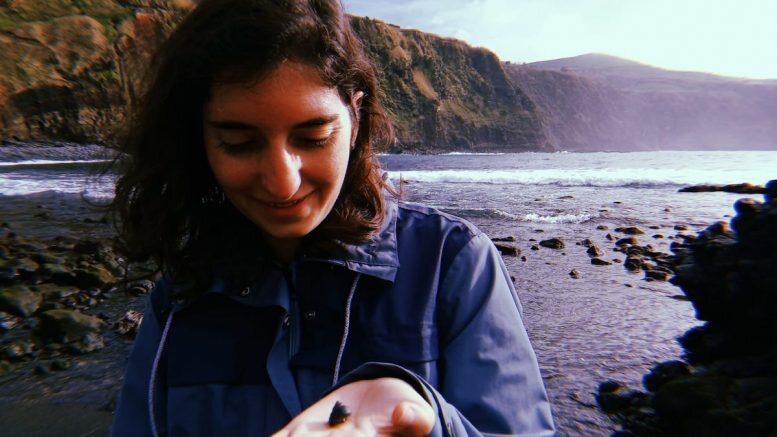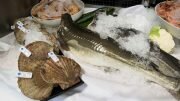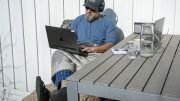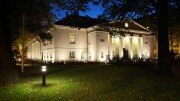What was supposed to be an amazing new beginning turned sour for this scientist.
Ana Teresa Capucho and her boyfriend, originally from Portugal, got offered jobs in Oslo earlier this year. The new opportunity was very exciting for the couple, but their happiness soon transformed into hardship. First, they weren’t allowed into the country for months. When they finally were given the green light to travel to Norway, the authorities wrongfully forced them into a hotel quarantine, which they were legally exempt from.
Meet Ana
“I’m a biologist working for the Natural History Museum of the University of Oslo, as a technical assistant in a research project.
“The project aims to study the diversity of marine invertebrates along the coast of Norway.”
“At the beginning of 2021, EU/EEA citizens weren’t allowed in Norway, despite having work, a house, and/or a life there, unless they belong to a few, very rare, exceptions. I strongly suspect that is a violation of the right of free movement in the EU/EEA.
“My boyfriend and I both got offered a job in Oslo in late 2020 and early 2021 and were not allowed to get in Norway until May. We are talking about a two-year contract and one with no term. There was not even the possibility of getting in with tests, quarantine, a COVID-antibodies certificate, or vaccine.
“Despite being Portuguese citizens, that, like Norway, belong to the EEA, we were banned from entering the country.”
What was your entry experience?
“My boss applied for an exemption from the entry restrictions on my behalf, which was first rejected, but after the second try, it was accepted. I then had to get to Norway as soon as possible, because we didn’t know if the rules would change again (and the exemption was only valid for 14 days).
“It was extremely stressful because for my partner to get in with me we had to get a certificate to prove we are co-habitants, translate it, certify the translation and put an ‘apostille’ for it to be internationally accepted. All of this while he had a valid work contract for a permanent position in Norway, but only I had been granted an exemption from the entry restrictions. Dealing with these bureaucratic processes in a rush was not an easy task, but eventually, it worked and we were on our way to Norway.
“We traveled on May 23, so we had to be on a necessary trip and have a permanent residence in Norway in order to skip hotel quarantine. I called Helsenorge a few days before to confirm we could quarantine from home, and they told me I met all the criteria (I was traveling for work and had a house in Norway).
“When we arrived at Gardermoen airport, after showing all our documentation to the border police officer, he decided to put us in a quarantine hotel anyway. When I told him my employer was waiting for us at the airport, he simply called him to say he could leave because we were going to a hotel. When my boss tried to argue that he was sure we could go home and asking for proof on the contrary, the police officer hung up on him.
“So we were sent to the hotel and were given an e-mail address to complain to if we thought we were misplaced there. We sent several e-mails explaining our situation, with quotes from the government website, Helsenorge, and even Lovdata, and were never given permission to leave. In fact, all the answers were the same, regardless of the content of the e-mail. This really seemed like a crazy annoying movie, where you are trapped somewhere and have no way to get out and no one tells you why you were put there in the first place.”
How are you feeling now?
“We are both fine now and settling in our new home, but this was an experience that we won’t forget so soon.
“It really gave us a horrible first impression of the country we thought so well of when we got our jobs here.
“And we are still slowly falling in love with Norway, but we probably won’t forget the terrible days we passed to get in the country.”
Did the entry situation affect your work in any way?
“Yes, absolutely. At first, my starting date was postponed for a month. Then, I had to start working from home, which was an inconvenient way to start a new project in a new country.
“The project I’m at involves a lot of fieldwork, which had to be done in the spring and summer, so the situation delayed the project for at least two months.”
How is the pandemic affecting your working in Norway now?
“Honestly, now that I finally managed to come here, I barely feel affected. Oslo has very few new cases, people are relaxing, and restrictions are slowly but steadily disappearing.
“My workplace is still a bit quiet, as some people are still choosing home-office, but every day people get more comfortable being there. I was supposed to go to Germany for some training, but that’s the only thing that still hasn’t happened.”
Are there any long-term effects on your new job due to the restrictions?
“The fieldwork that got delayed might present some limitations towards achieving the goals of the project, but hopefully not.”
What do you think about Norway’s handling of COVID-era entry into the country? Write to us and let us know.
Norway’s entry restrictions change regularly. For government information on entering Norway, visit The Norwegian Directorate of Immigration’s (UDI) website. Find more coverage on travel within, to, and from Norway on Norway Today’s website, Facebook, Instagram, and Twitter.
Source: #Norway Today, #NorwayTodayNews
Do you have a news tip for Norway Today? We want to hear it. Get in touch at [email protected]






I would say there are hundreds of people who cannot enter Norway despite being vaccinated and granted residence permits. With no timeline published by the authorities and very minimal knowledge among relevant state departments the whole process is very badly managed. Indeed a very bad impression for Norway – and the right politics.